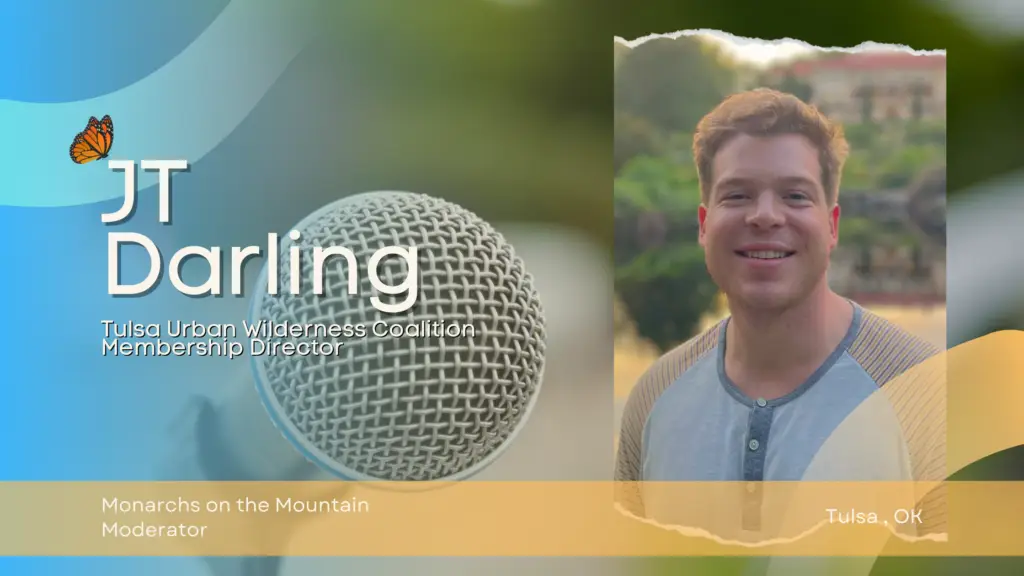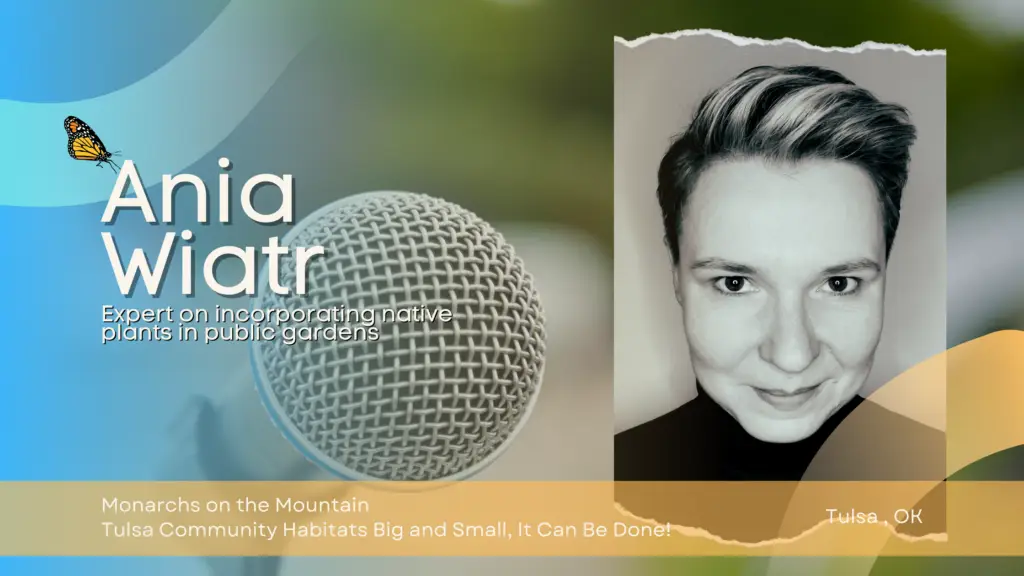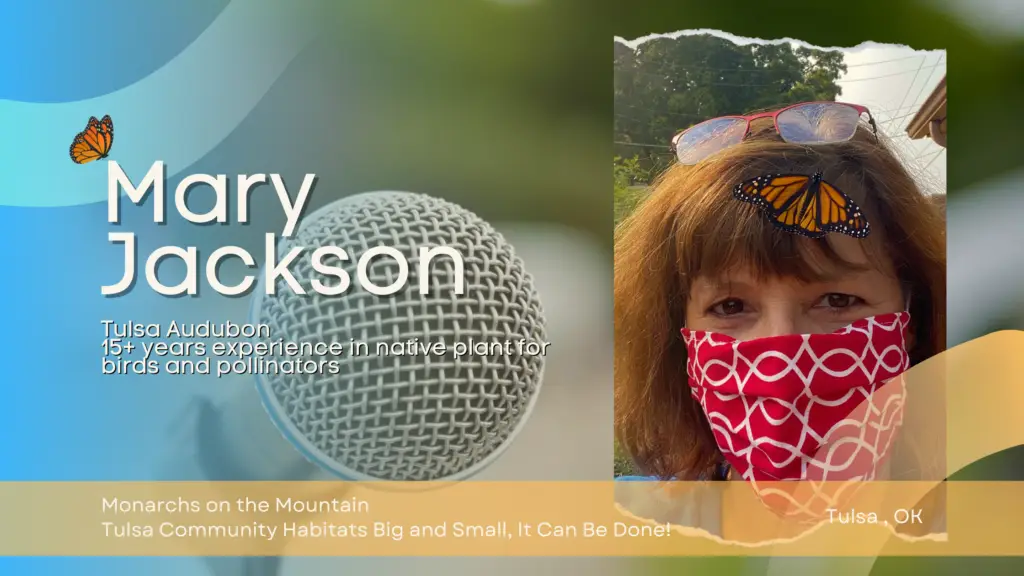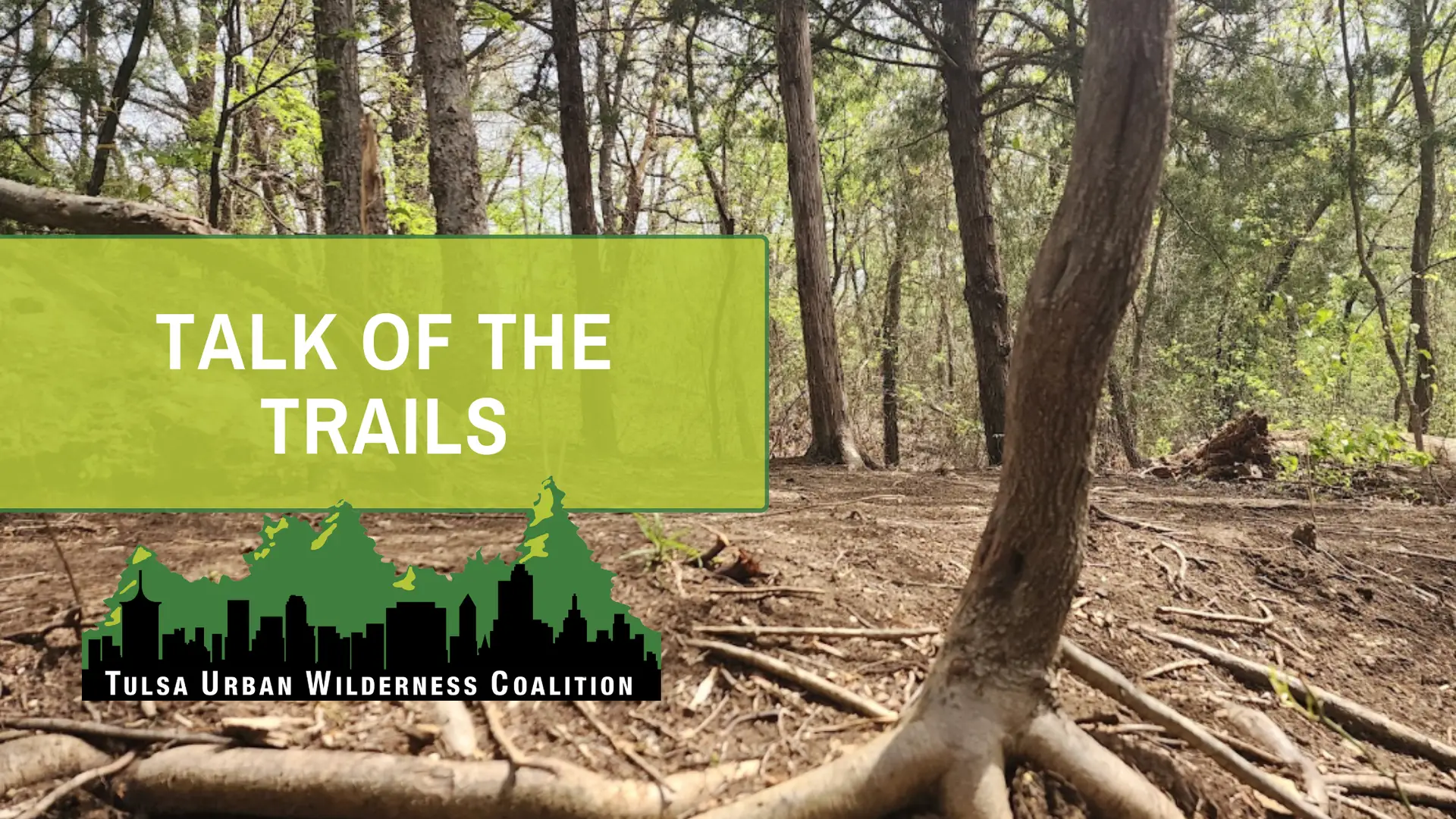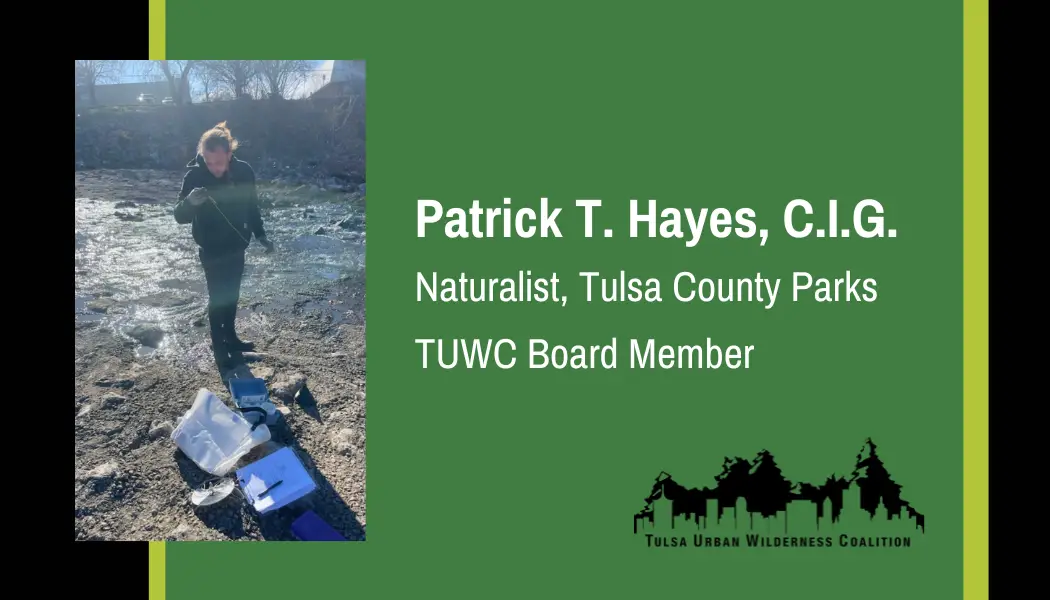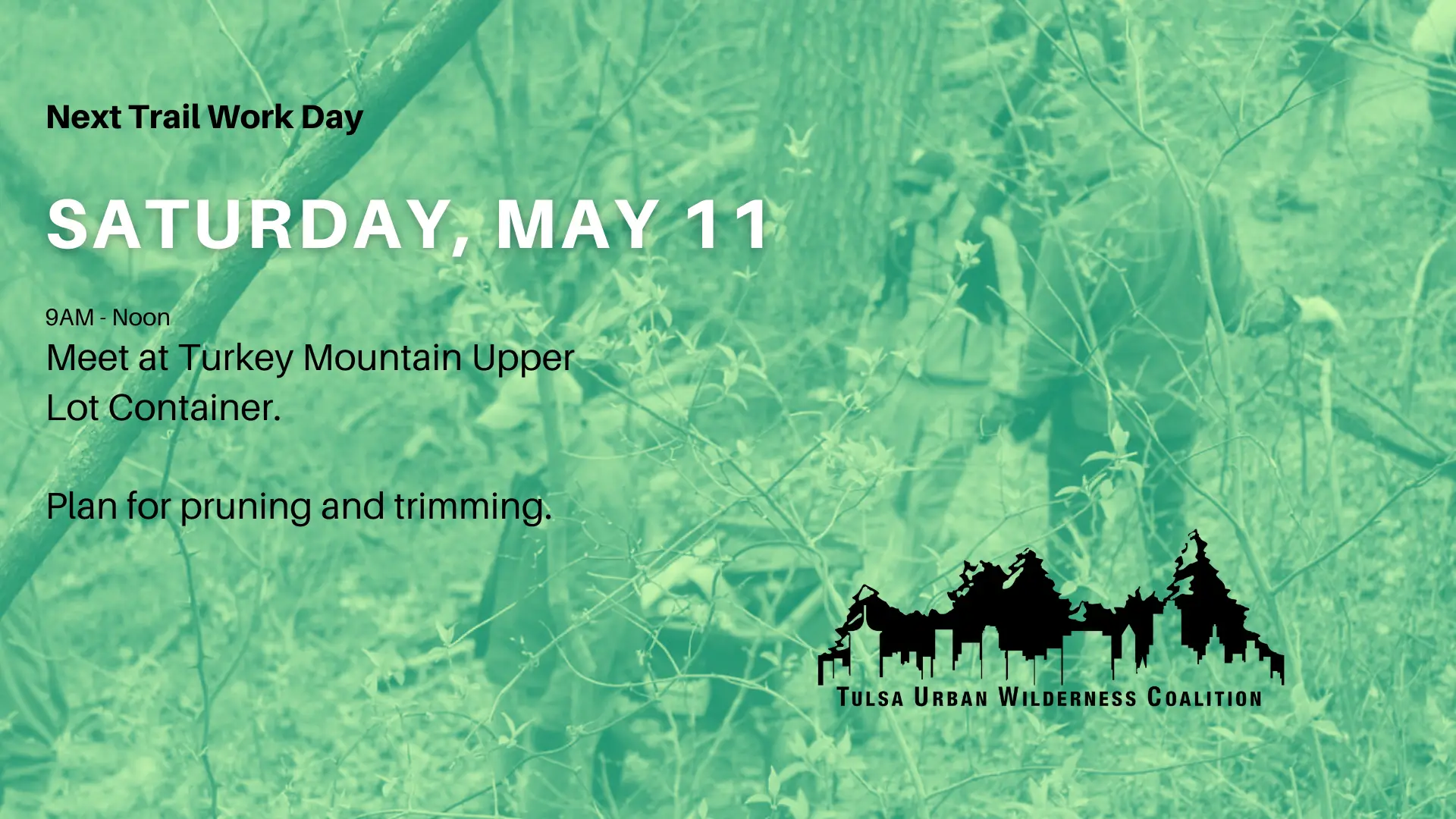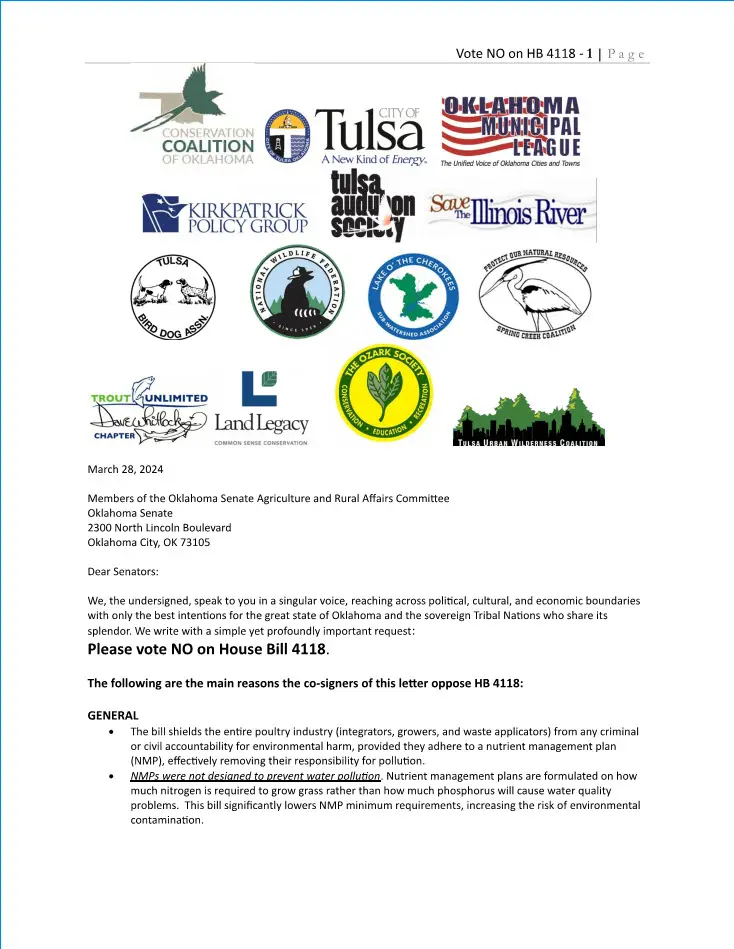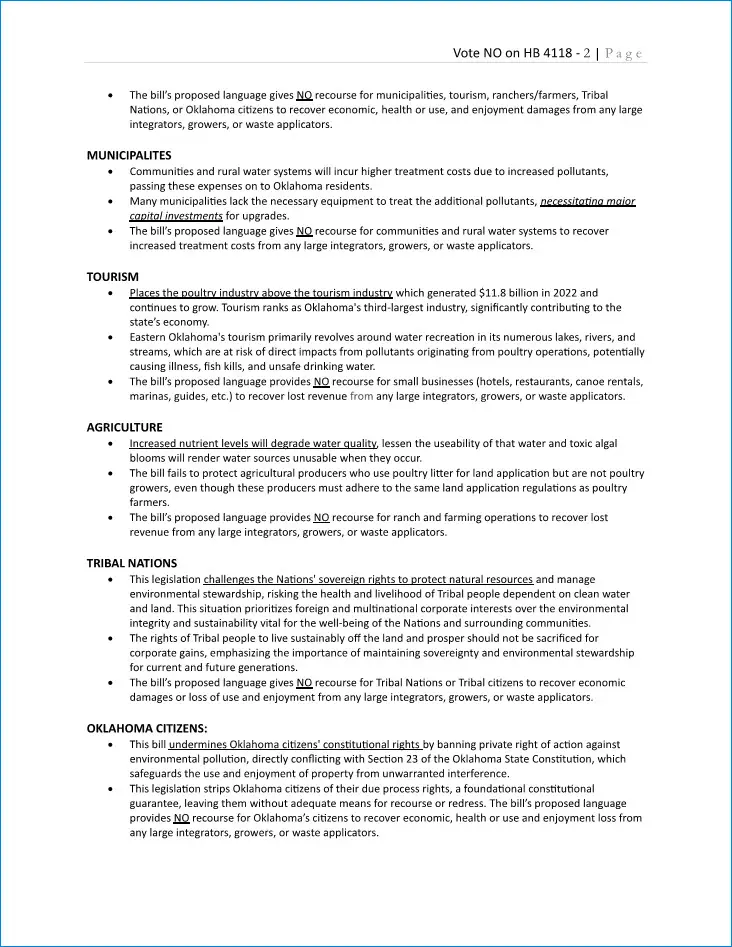
2024 Monarchs on the Mountain • Sept 21
Monarchs on the Mountain: A Celebration at Chandler Park
For the second year, Monarchs on the Mountain returns to Tulsa County Parks Chandler Park, offering a beautiful setting for one of nature’s most spectacular migrations. Every fall, as monarch butterflies journey thousands of miles across North America, Chandler Park becomes a hub of excitement and learning, where the community comes together to celebrate these incredible pollinators and learn about the conservation efforts that can help ensure their survival.
Why Monarchs Matter
Monarch butterflies are not only visually stunning but also vital contributors to pollination and biodiversity. Each year, they embark on an epic migration from Canada to Mexico, a journey that faces increasing threats from habitat loss, pesticide use, and climate change. Monarchs on the Mountain highlights the importance of protecting these butterflies and their migration routes, encouraging local involvement in conservation efforts.
As one of nature’s most iconic migrators, monarch butterflies serve as ambassadors for broader ecological health. By protecting their habitats—rich with native plants like milkweed and nectar sources—communities support not only monarchs but a wide range of other pollinators and wildlife.
What’s Happening at Monarchs on the Mountain?
Held at the scenic Chandler Park, this year’s Monarchs on the Mountain promises an immersive and educational experience for all ages. Some of the exciting activities you can look forward to include:
– Monarch Biology Workshops:
Experts will guide participants through the fascinating lifecycle of monarch butterflies, discussing their biology, migration, and the environmental challenges they face.
– Butterfly Tagging Demonstrations: Tagging monarchs is a vital part of research and conservation efforts. Join our team to learn about this process and witness the tagging of butterflies, which helps track their migratory paths.
– Native Pollinator Gardens: Explore the pollinator-friendly gardens at Chandler Park, where you can learn about the native plants that attract monarchs and how to create your own butterfly haven.
– Family Activities: From butterfly-themed crafts to face painting and nature hikes, there’s something for the whole family to enjoy.
– Conservation Talks: Local environmental advocates will share their knowledge and strategies for protecting monarch habitats in urban areas, encouraging everyone to take small, impactful actions.
How You Can Help
Monarchs on the Mountain isn’t just a one-day event; it’s a movement focused on ongoing monarch and pollinator conservation. Whether you’re an experienced gardener or just starting to learn about monarchs, there are several ways you can contribute:
– Plant Native Milkweed: Monarchs rely on milkweed to lay their eggs, and it’s essential for their survival. Planting native species of milkweed in your garden helps support the monarch population.
– Reduce Pesticide Use: Pesticides are harmful to monarchs and other pollinators. Opt for natural pest control methods to create a safer environment for these creatures.
– Spread Awareness: Use your voice! Share information about the monarch’s plight with friends, family, and on social media to help raise awareness and inspire action.
Growing Our Movement
This year, our goal is to continue building the Monarchs on the Mountain community. We’re working to grow our social media presence and reach 1,000 followers before the event. By spreading the word and encouraging others to join, we can create a ripple effect of awareness and support for monarch conservation.
The monarch migration is a reminder of the delicate balance of nature and our role in preserving it. Join us at Chandler Park for Monarchs on the Mountain and become part of a growing movement dedicated to ensuring that future generations can enjoy the sight of these beautiful butterflies soaring through the sky.
—
Be sure to follow Monarchs on the Mountain on social media for event updates, pollinator garden tips, and ways to get involved in monarch conservation. We can’t wait to see you at Chandler Park for another inspiring year!




